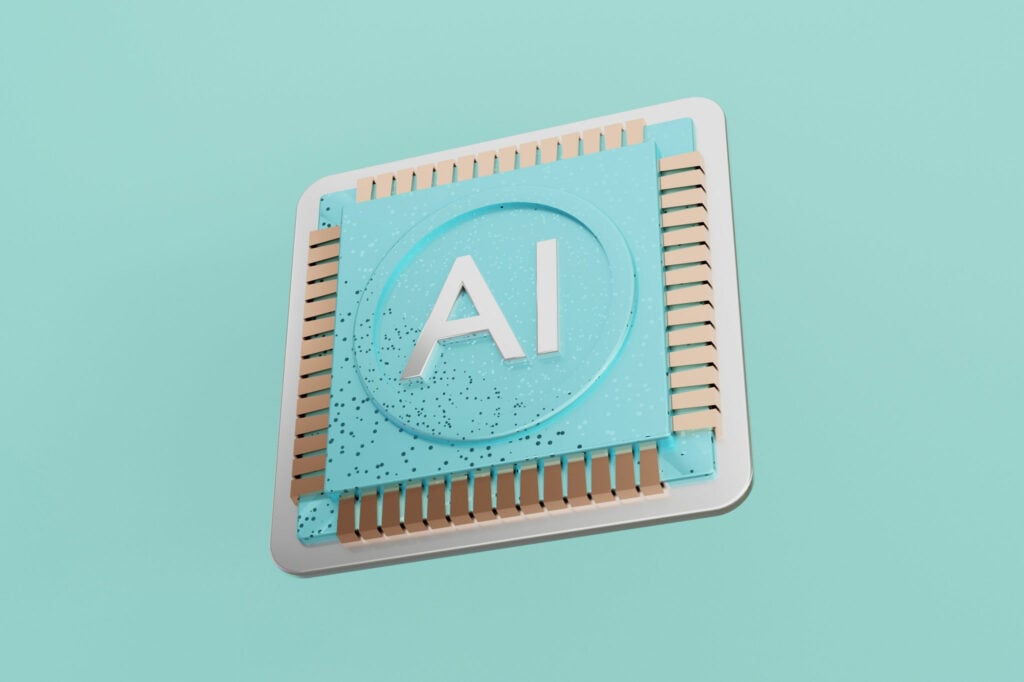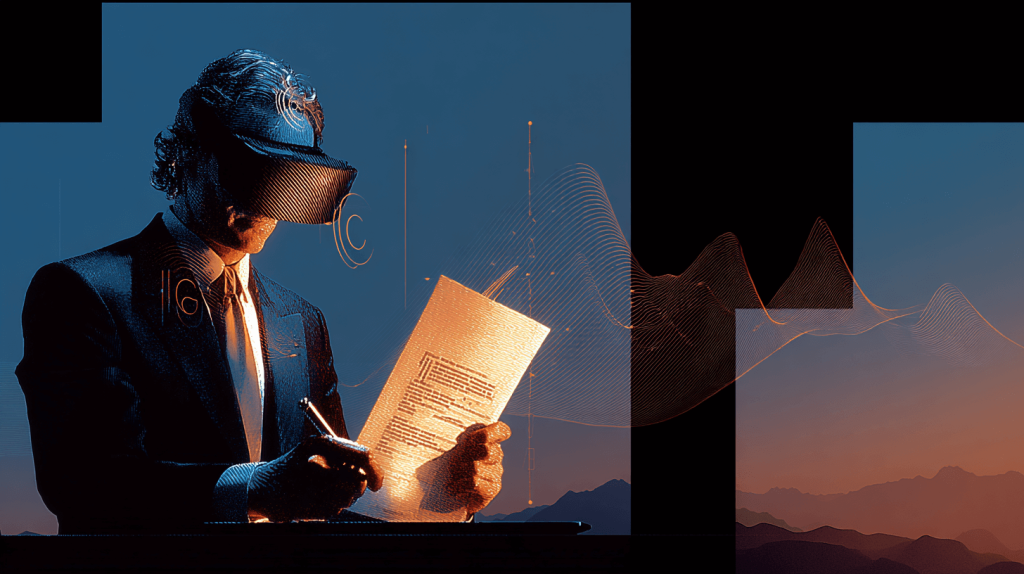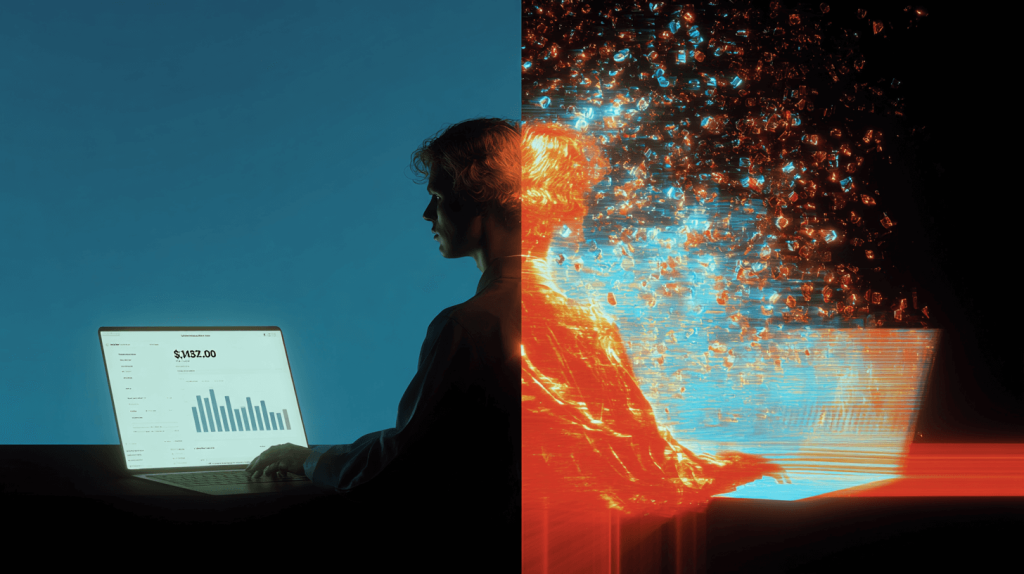As an AI Patent Attorney, it’s clear that artificial intelligence (AI) is permeating almost every sector, from ChatGPT to smart indoor farming to speech recognition technology that decodes a baby cry, artificial intelligence (AI) seems to be everywhere these days. According to IBM, the global AI adoption rate sits at 35%, with an additional 42% of companies actively exploring AI. AI is transforming many aspects of everyday life, from manufacturing and the supply chain to agriculture to healthcare and government.
From 2002 to 2018, annual AI patent applications increased by more than 100% to more than 60,000 annually. This corresponds to the share of all patent applications that contain AI from 9% to nearly 16%. By 2020, USPTO had received about 80,000 patent applications for AI software and approved 77% of them. Whether it is a machine learning algorithm, which makes up 40% of AI IP cases, natural language processing, or computer vision, AI IP rights stand poised to shake up the business landscape.
The artificial intelligence (AI) market is set to explode to $1.6 billion by 2030, innovative companies are seizing the opportunity to safeguard their AI and machine learning inventions through legal protection. AI-related patents make up an astounding 42% of all technology patents. While it feels like every organization is vying for AI dominance and trying to patent their proprietary platform, it’s evident that obtaining patent protection is not a straightforward process.
The expertise of patent attorneys versed in AI technology is pivotal in navigating a smooth and successful AI patent application. From conducting a patentability search and preparing your application to offering guidance on handling rejection or additional information requests, this guide provides a comprehensive overview of what you should know when working with patent attorney to protect your AI technology.
Can You Patent Artificial Intelligence?
The concise answer is “Yes.” While AI technology feels complex, its applications often boil down to a few key areas. First, machine learning makes up the majority of AI techniques and has grown roughly 28% each year from 2013 to 2016. Under “machine learning,” deep learning and neural networks give way to machines that truly “learn” upon their own work. Algorithms learn, iterate, and improve upon their outputs through modeling and reinforcement.
Product recommendations are a prime example of machine learning; based on your shopping and purchasing behaviors online, recommendation engines can suggest products based on your shopping habits. Then, based on your response to those recommendations, the algorithm can narrow your preferences even further, creating more refined suggestions.
Second, applications such as computer vision, facial recognition, natural language processing, and speech processing make up a bulk of artificial intelligence uses. Facial recognition technology is often used in social media filters and biometrics are now used for increased border security and safer travel.
When filing for an AI patent, however, it’s important to remember it is an intricate process, and applications are often rejected simply because the AI technology is inadequately described in your claim set or the specification of your application. Below are a few tips to consider when preparing your AI patent application.
While preparing to move forward with a patent application, you must first determine the following:
- What point(s) of novelty does my AI platform include?
- What is the AI platform’s proprietary process?
- What unique functionality will my AI platform solve or predict?
- What technical improvement over existing technology will my AI platform provide?
- Am I applying AI to a practical application?
If you can adequately answer all these questions, your AI platform or system is likely well on its way to being considered patentable subject matter. Answering these questions requires an inventor to understand and articulate how a combination of features works to produce a desired outcome or, in the case of an algorithm, how a series of steps alone may create a technical improvement over existing technology.
Additionally, it’s important to remember AI cannot be an inventor. Currently, patent requirements state that inventorship is not a discretionary issue and all inventors must be identified in the application. Generally, inventors are individuals who have made contributions to any of the subject matter featured in the claims of an application and not merely the conception of an idea. Inventorship also requires the reduction of the idea or making a working example of the claimed invention.
So, can AI be considered as the legal inventor on a patent application if it contributes to the subject matter of the claims? Currently, the answer to this question is “no,” and the listing of all human inventors and their duty of disclosure is fundamental to the validity of established patent rights.
If you have a novel, human-produced AI technology, then a prior art search can help determine if your invention already exists or holds patent protection, providing a foundation for drafting your application.
The Role of an AI Patent Attorney
Like any other intellectual property claim, expert legal help is important for protecting your rights. Patent attorneys versed in AI play a pivotal role in successfully drafting patent applications and securing patent rights. A qualified patent attorney can assist you in a few ways:
Build a High-Quality Application
Patent attorneys versed in AI excel in searching and drafting and well-crafted claim set, specification, and drawing figures. Their expertise extends to offering guidance on the correct patent illustrations like flowcharts or diagrams and perfecting the language used in your claim set.
This proficiency significantly accelerates the patent approval process and increases your chances of a receiving a notice of allowance. Moreover, when facing an Office Action necessitating revisions or supplementary information, patent attorneys versed in AI are adept at facilitating swift and effective responses, optimizing the likelihood of a favorable outcome.
Both the United States Patent and Trademark Office and European Patent Office are constantly updating regulations due to the boom in AI patent filings. Legal rulings and qualifying innovations might change as they attempt to keep up with the latest practices and innovations. Thus, the process is similar to filing for any sort of intellectual property right.
1. Identify Patentable AI Innovations
Speak with a qualified patent attorney at the Rapacke Law Group to identify patentable subject matter in your AI-based software or within your own AI models and training processes. At Rapacke Law Group, we will help you research and prepare your patent application to meet the requirements of the USPTO, such as 35 U.S.C. §§ 101, 102, 103, and 112.
2. Conduct a Thorough Prior Art Search
Your technology needs to be new and non-obvious to achieve patentability. This requires conducting a thorough patent search to ensure you’re not infringing on an existing patent and gathering research on successful similar patents. This helps build the strongest case for protecting your innovation.
3. Prepare and File the Patent Application
Once you have determined your AI is, in fact, novel and nonobvious, it’s time to file your patent. First, clearly identify the novel, inventive aspect of your AI-technology. Thoroughly describe all systems, processes, and components involved, and avoid generic language or simply re-writing your AI’s functionality as replacing a human.
Help You Meet Ever-Changing Patent Requirements
Initially, patent attorneys help you determine if your invention meets patentability requirements under 35 U.S.C. § 101. Subsequently, they can help you pinpoint the specific inventive step or “point of novelty” in your AI process. Additionally, due to the continuous evolution of legal standards and qualifying criteria, especially in the fast-paced realm of AI innovation, a patent attorney is equipped to keep you informed on the best language to incorporate in your specification and claim set.
Identify Qualifying Business Inventions to Create a Robust AI Patent Portfolio
A patent attorney well-versed in AI can help you assess your existing business inventions to establish a long-term AI portfolio. If your company has created algorithms, machine learning sequences, computer vision programs, or other type of AI tools, all of these could be potential patents. A robust AI patent portfolio can lay the foundation for the next decade of industry-leading firms that opt to safeguard their AI inventions with legal protection.
Why You Need an AI Patent Attorney
AI patent law is complex, to say the least; between constantly evolving legal requirements and complex technicalities of AI inventions, AI patents are challenging to get approved. Nonetheless, Bloomberg Law revealed a significant reduction in AI patent rejections when applicants began seeking legal assistance. Expert guidance led to a remarkable 50% decrease in AI patent rejections, bringing them down to just 32%.
Long-Term Cost Savings
Your AI patent stands a better chance of success on its initial submission. Composing numerous applications, only to face rejections after investing both time and money in the application process can be heartbreaking. Hiring a patent attorney with experience in AI may mean more money upfront than simply DIY-ing your application. But the guidance and knowledge of an experienced patent attorney will undoubtedly save you money, time, and heartache in the long run.
Faster Approval Process
With expert legal guidance, you can respond quickly to the patent examiner’s request and, most likely, provide the needed information to have your application approved. The faster your application gets approved, the faster you can start using your AI patent to your advantage.
What to Look for in an AI Patent Attorney
Finding a patent attorney with expertise in AI is an essential tool in building your AI portfolio. Here are some things to consider when looking for a qualified patent attorney for your AI patent:
Experience in AI, Software, and Patent Law
A patent attorney working on your AI claims should possess specialized expertise in artificial intelligence, software, and patent law. They should have a track record of publishing articles, demonstrating their distinctive insights into these domains, and garnering positive online reviews.
Even during your initial consultation, you should gauge whether they truly embody profound technical expertise or are merely scratching the surface of AI patent law.
AI and software patents present distinctive challenges beyond the conventional hurdles of inventorship. Not every patent lawyer is well-versed in these specific domains due to their relatively recent emergence.
Strong Track Record
Client testimonials and reviews are significant in choosing a high-quality AI patent attorney. It shows they can be trusted, exceptional customer service, and, most importantly, have a track record of success when it comes to patents and intellectual property rights.
While many law firms will cherry-pick positive client testimonials to feature on their website, you can also double-check their entire review list on their Google page or Trustpilot. At Rapacke Law Group, we’ve helped secure over 2,000 patents and trademarks for entrepreneurs, start-ups, and corporations, demonstrating our commitment to delivering tangible results.
Good Communication Skills
Your ideal patent attorney should possess clear and effective communication skills. This makes the process of working with them seamless and ensures they can help draft a clear, concise, and highly technical patent application.
Here are a few questions to ask when evaluating an attorney’s communication skills:
- Do they answer your questions with a thorough yet easy-to-understand answer?
- Does their website illustrate a deep understanding of the artificial intelligence landscape?
- Are they quick to respond over email and phone calls in a timely manner?
- Do they show up promptly and are well-prepared for consultations or meetings?
Predictable Flat-Fee Pricing
Since AI patent application can be time-consuming and require multiple revisions before and after submission, predictable, flat fee pricing offers transparency and visibility into the cost of your patent. On the other hand, with hourly pricing, you can quickly rack up a huge bill, especially if your attorney is not well-qualified.
At Rapacke Law Group, we offer a unique guarantee and peace of mind in knowing your intellectual property will be secured or you don’t pay. We start with a free strategy call, and then one of our experienced US attorneys will lead your patent application from start to finish. Our comprehensive IP services are covered by a single, transparent flat fee that covers the entire process, including office actions and unlimited responses.
Furthermore, the ultimate peace of mind is a full refund if the United States Patent and Trademark Office (USPTO) denies your application or if your invention has registerability issues.
Patent Agent vs. Patent Attorney
You may have come across a patent agent. In general, a patent attorney is more comprehensive than a patent agent. All patent attorneys have the qualifications and abilities of a patent agent.
However, it is important to note that patent agents often lack legal training and cannot provide legal advice. On the other hand, all patent attorneys have passed the USPTO patent bar exam. While patent agents are often cheaper, flat-fee pricing from patent attorneys helps close the gap and levels the playing field when it comes to costs.
AI Patent Attorney Cost
When exploring legal protection for your invention, you might wonder what an experienced patent attorney can cost. During the software or AI patent process, there are a few different costs to consider. Ultimately, the complexity of your software invention and your patent law firm will determine your full investment.
First, there are application fees mandatory for the USPTO. If your patent is approved, you’ll have regular maintenance fees to maintain ownership.
Outside of paying for the patent itself, you have to consider the investment in the software patent application process. For a provisional patent that gives you the “patent pending” status and protects your ideas, it can cost anywhere from $3,000 to $10,000 or more in some cases.
At Rapacke Law Group, our transparent flat fee pricing means there are no hourly billing or
charges for calls and emails while working to secure your patent. A qualified patent attorney can more than pay for themselves, especially in regards to helping your organization create an intellectual property roadmap to secure patents for years to come.
Will AI Replace Lawyers?
Patent attorneys are valuable, but is there ever a danger of lawyers being replaced by AI? Artificial intelligent tools are actually helping qualified lawyers get more done in less time. AI can automate repetitive, manual tasks and even break down complicated legal issues. AI can reduce time spent reviewing and editing documents, allowing lawyers to apply the finishing touches.
It’s unlikely that AI will ever truly replace lawyers, as there are many unresolved issues around confidentiality, liability, and security. Furthermore, most AI systems learn upon previous inputs, meaning there is a high rate of eventual misinformation and corruption.
Can AI Be An Inventor?
When seeking intellectual property protections for AI, it’s important to note that an essential detail is that the inventor must be a human. Currently, you cannot receive a successful patent when stating the AI was the inventor. For example, if your organization developed a machine learning system that then went on to create an entirely new algorithm, the human inventor must be stated as the original creator.
Start Working with an AI Patent Attorney
Not all patent attorneys are created equal and understand the underlying technology is fundamental to receiving an issued patent. Working with Rapacke Law Group will save you time, money, and hassle. In addition to a fixed-fee billing approach, RLG offers a money-back guarantee on all prior art searches, trademark applications, provisional patent applications, and design patent applications. To be clear: should our team determine that your invention is not patentable in light of the prior art, a full refund will be provided. If patentable, we will credit the cost of your search towards your new application.
For trademark and design patent applications, this means that if your application does not receive a notice of allowance for any reason, we will provide a full refund. Our trademark and design patent application packages include all search, preparation, office action, USPTO correspondence, and filing fees. Please schedule a free IP strategy call or take our Intelligent IP Quiz to see what protection is best for your invention.




